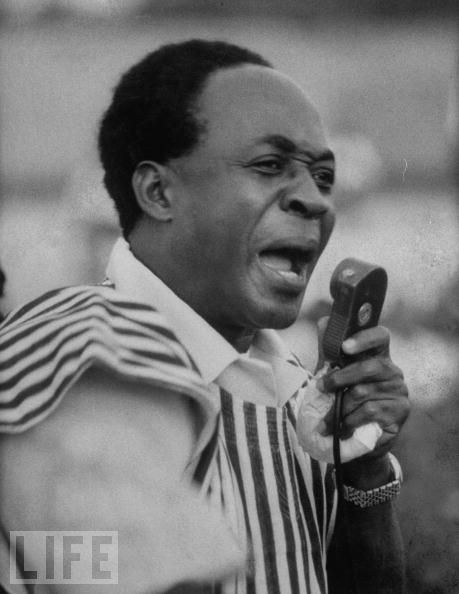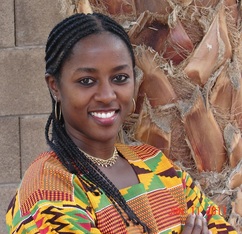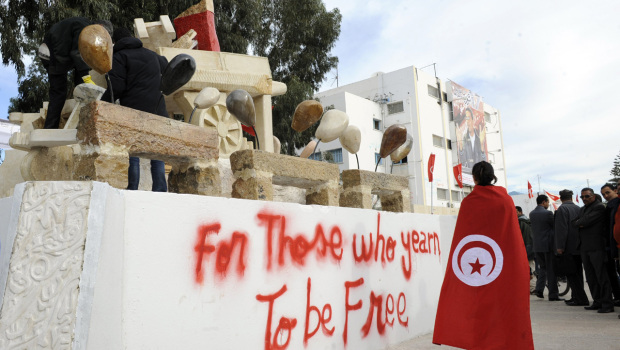I once read that “the battle for control or leadership of the world has always been waged most effectively at the idea level. An idea, whether right or wrong, that captures the minds of a nation’s youth will soon work its way into every area of society, especially in our age of multimedia.”[1] Given this, it is safe to say that a compelling idea that speaks to a nation’s youth is a powerful determinant of future consequences. - Erika Amoako-Agyei |
Originally published October 6th, 2011 in AfricaBusinessCommunities.com:
It is no surprise that young people are often drawn to new ideas that challenge the status quo or question older forms of authority. This is evident today across the Arab World, where powerful, long-standing regimes with histories of autocratic rule are being toppled or challenged by youth-led rebellions.
In December 2010, Mohamed Bouazizi, a 26-year-old fruit vendor in Tunisia set himself ablaze on the steps of a local government building in protest of his treatment by police. Ever since then, youth-led protests have erupted across North Africa and the Middle East. Touching off an explosive mixture of economic despair, social frustration, and political yearning throughout the region, the flames consumed not only Bouazizi—who died on January 4, 2011— but, in the weeks and months afterward, the regimes of Tunisian President Ben Ali and Egyptian President Hosni Mubarak.
Egyptians, like Arabs everywhere, were mesmerized by the popular uprising in Tunisia. In the early planning of the Egyptian protests, Shadi Taha, a 32-year old activist, says he and fellow organizers envisioned a gathering of about 200 protesters. Then Tunisia happened. "That gave us hope that this might happen in Egypt as well," he says. The demonstration in Egypt had been planned weeks in advance by a loose coalition of activists who used social-media sites to commemorate Khaled Said, a 28-year-old Egyptian who was beaten to death by police in the summer of 2010. Members of the new opposition alliance started organizing in small groups of three to four people who went door to door passing out flyers that told people to attend the protest on Jan. 25. They put up Facebook pages and posted on Twitter.
With simple tools like cell phones, they were no longer limited by time, social class or location. Social media tools have, in effect, redefined the whole concept of grassroots, making it easier for the powerless to collaborate, coordinate, and give voice to their concerns.
It was the success of Tunisia that turned what was expected to be a small demonstration into a nationwide revolt, says Taha. "We used to say, 'Hey, we are having a demonstration, come join us to change your country,' but no one believed us that it would work. But the Tunisian tsunami gave everyone hope. People realized that if they joined, it would make a difference. And from there it snowballed." In his wildest dreams, Taha didn't expect to see 5,000 people on Jan. 25, 2011. When he counted more than 10,000, he knew that the end of the regime was simply a matter of time. The police wouldn't be able to stop them, and the army wouldn't dare fire on its own people, especially not in front of the media. "What happened on the 25th was a turning point," says Taha.
As the protests in Egypt demonstrated, the use of social media tools—Facebook, text messaging, crisis mapping and Twitter—can help loosely coordinated groups demand for massive social change.
According to SocialBakers, the place to go for stats on Facebook, Africa is currently the most dynamic continent on Facebook and gained more than 50 percent of its 25 million Facebook users in the six months up to February 2011. The top three countries in Africa are Egypt (5.6 million users), South Africa (3.7 million users) and Morocco (3 million users).
Looking Back

Kwame Nkrumah became the nation’s first prime minister (and later president). The young leader marked the day with these inspiring words: “The independence of Ghana is meaningless unless it is linked up to the total liberation of Africa.”
As author John Gunther stated in 1955, “One of Nkrumah’s biggest asset is that he has captured the imagination of the youth, and works from the bottom up.”[2]
Nkrumah did not merely say, “Wow, look what we have done”. Rather, he made a commitment to the rest of the African continent. He said we have been liberated, and now we must work towards the liberation of others. The underlying message is that freedom in isolation is not enough.
As author John Gunther stated in 1955, “One of Nkrumah’s biggest asset is that he has captured the imagination of the youth, and works from the bottom up.”[2]
From One to Many
But as Fareed Zakaria wisely points out in his insightful article, 'Why There's No Turning Back in the Middle East,' “It's too simple to say that what happened in Tunisia and Egypt happened because of Facebook.” He asserts that "the central, underlying feature of the Middle East's crisis is a massive youth bulge. About 60% of the region's population is under 30." This is also true for most of sub-Saharan Africa. In Nigeria, Africa's most populous country with 155 million people and a major supplier of oil to the United States, almost three quarters of the population is under 30.
But unlike Nigeria, more than half the population of many countries across North Africa and the Middle East has lived under only one political leader. Libya’s Muammar Ghaddafi came to power in 1969; Yemen’s Ali Abdullah Saleh in 1978; Egypt’s Hosni Mubarak in 1981; and Tunisia’s Ben Ali in 1987. These are countries where the median age is around 25 years.
"While Muslim Protesters prayed today, Christian Egyptians formed human chains to protect them. Solidarity, strength and co-existence." . . . an “alliance of civilizations” that sees the joining together of secular, religious and civic groups in common cause for fundamental rights.
By the end of January 2011, the streets of Cairo and Alexandria and other cities across Egypt were filled with crowds of energetic, strong-willed men from all walks of life and even some women, all determined to shape their destiny and become masters of their own fate. In response to the protests, the Egyptian government managed to block access to the Internet and most mobile phone networks, effectively shutting off most messages via Twitter and Facebook for five days. But with the use of some mobile devices that could still send email, observers and participants sent messages to be tweeted internationally.
Interestingly enough, a much-retweeted post in English was this one by Pakastini blogger and feminist activist Sana Saleem:
"While Muslim Protesters prayed today, Christian Egyptians formed human chains to protect them. Solidarity, strength and co-existence."
Now this is a gesture that represents a hopeful sign in the Arab Spring: an “alliance of civilizations” that sees the joining together of secular, religious and civic groups in common cause for fundamental rights.
Learn more: Like AFRICA BUSINESS REVIEW on Facebook at: https://www.facebook.com/AfricaBusinessReview
Follow Erika Amoako-Agyei: Erika Amoako-Agyei is an experienced intercultural trainer & business consultant with business expertise covering the sub-region of Africa. She trains and offers consulting services to global companies and non-profit organizations expanding into Africa. As a visiting professor, she also teaches intercultural communications graduate and undergraduate students.
Twitter: http://twitter.com/Erika_Amoako
LinkedIn: contact Erika on LinkedIn
Like us on Facebook: Africa Business Review Face Page
Facebook: http://www.facebook.com/AfricaBusinessReview
Follow Erika on Facebook: https://www.facebook.com/erikaamoakoagyei
Website: www. AfricaBusinessReview.net
Website: www.AfricaIntercultural.com

